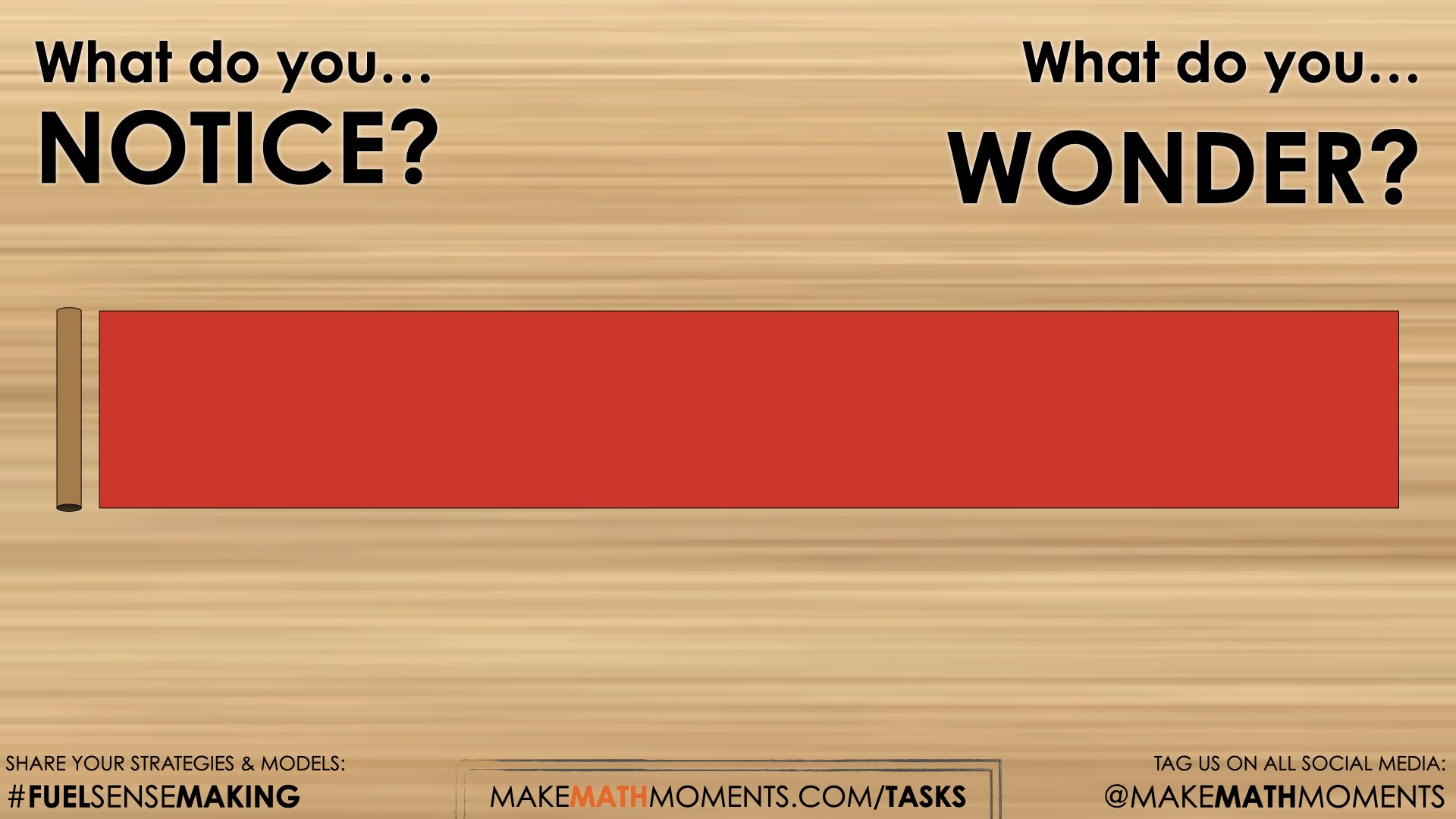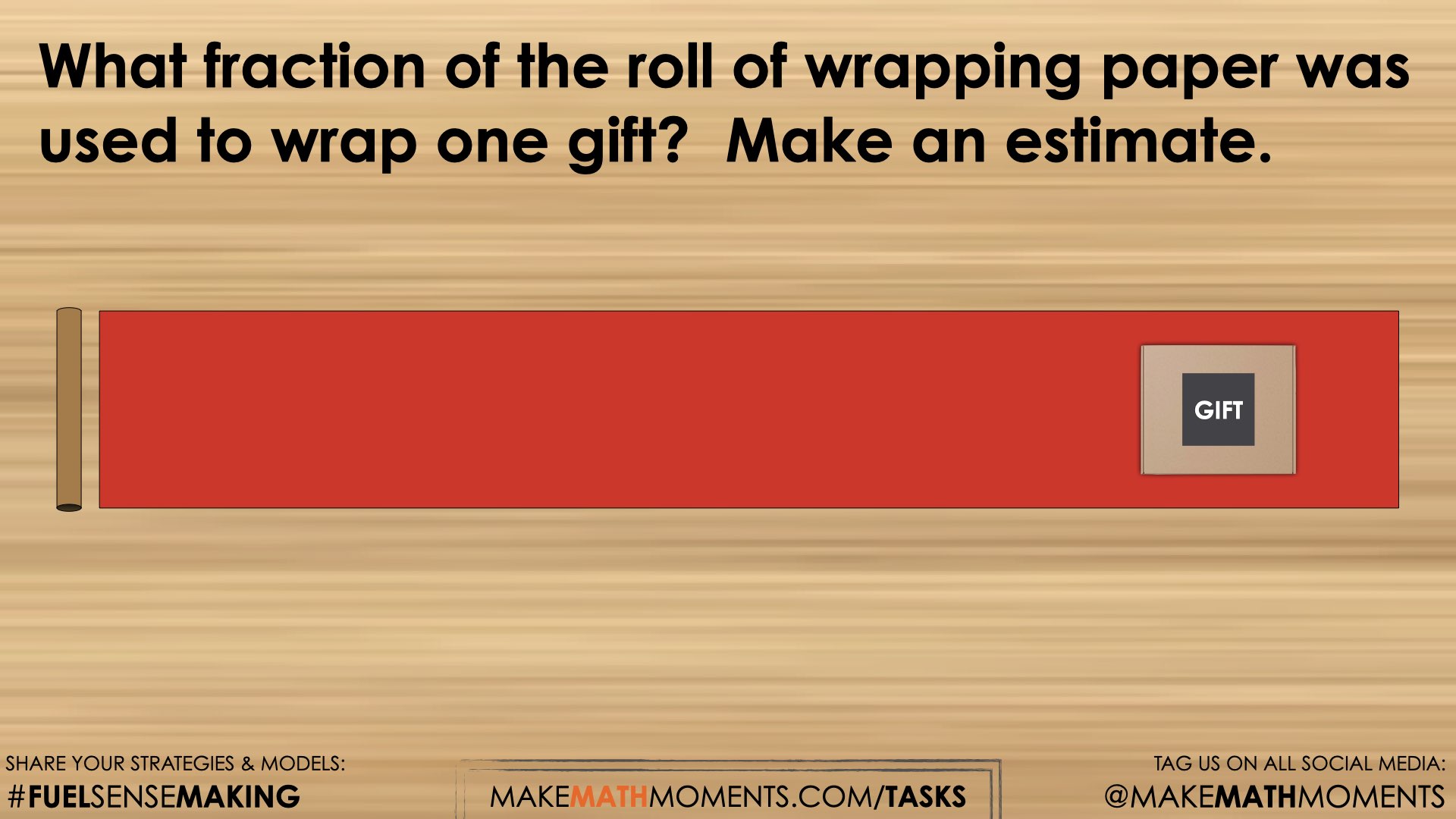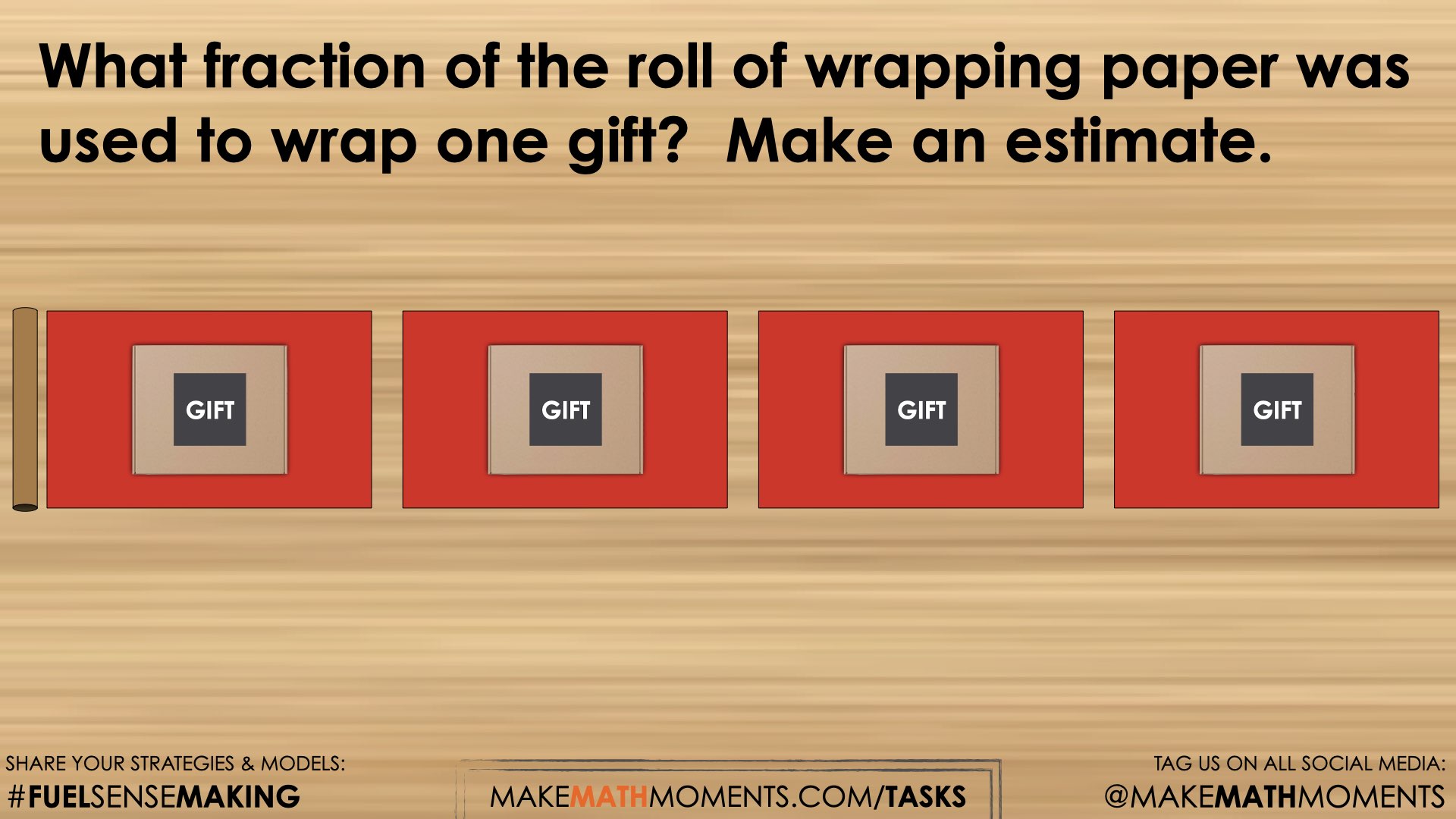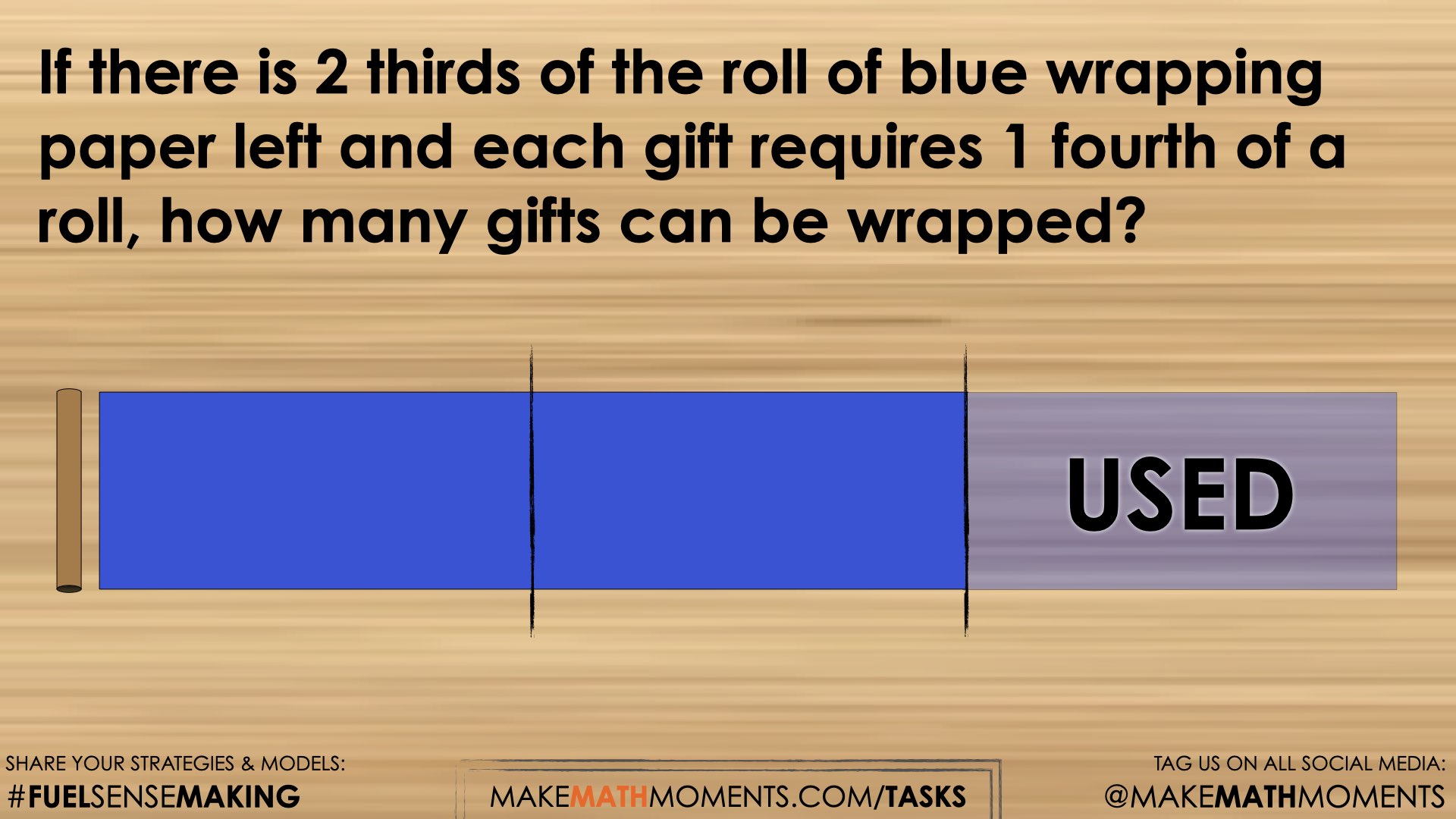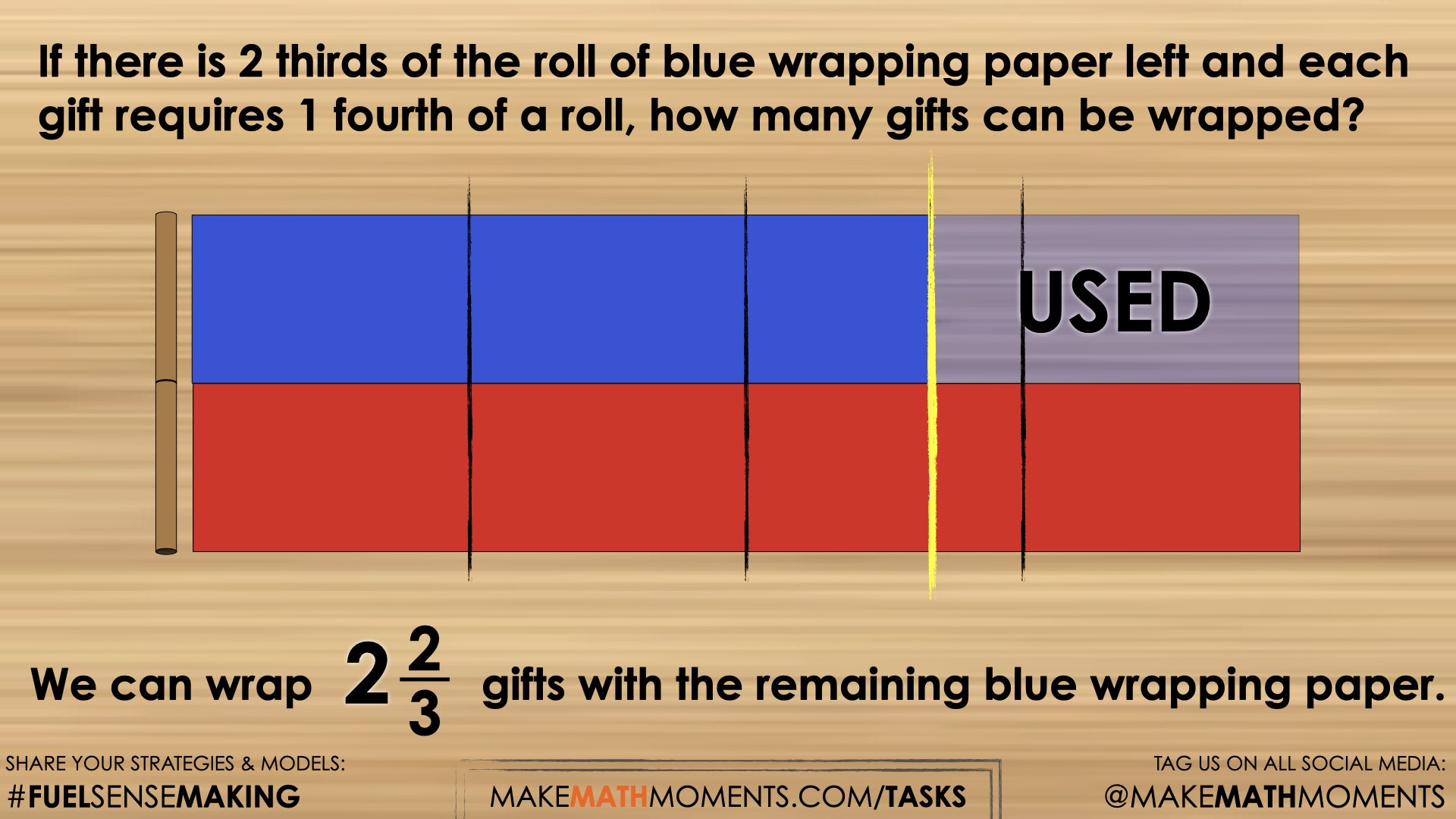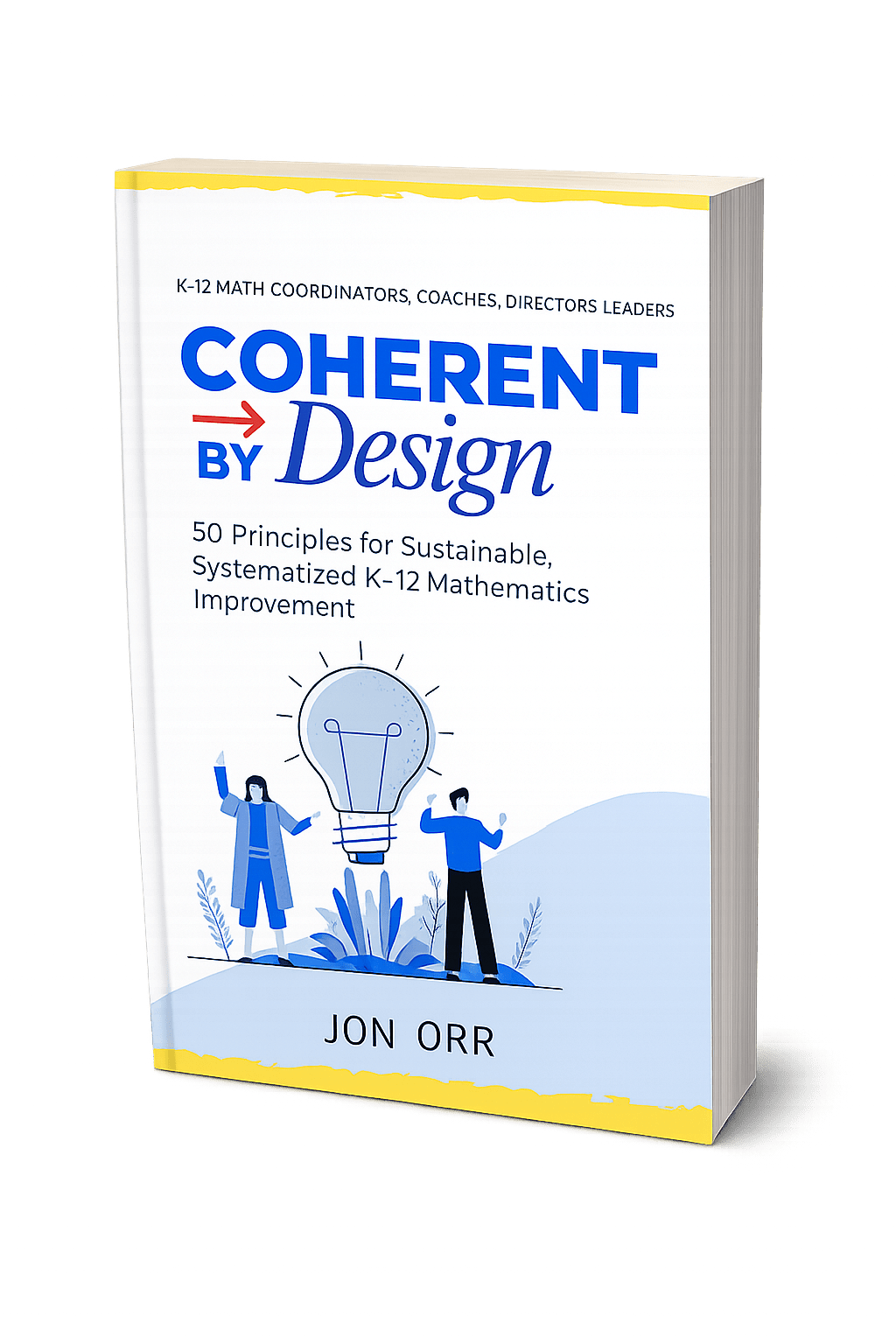PIZZA PARTY [DAY 3]
DIVIDING FRACTIONS THROUGH QUOTATIVE DIVISION
Explore quotative division of fractions conceptually using the bar model, double number line and ratio table.
Intentionality
Spark Curiosity
Fuel Sensemaking
During Moves
Student Approaches
Next Moves
Consolidation
Reflect and Consolidation Prompts
Resources & Downloads
Educator Discussion Area
Intentionality & Unit Overview
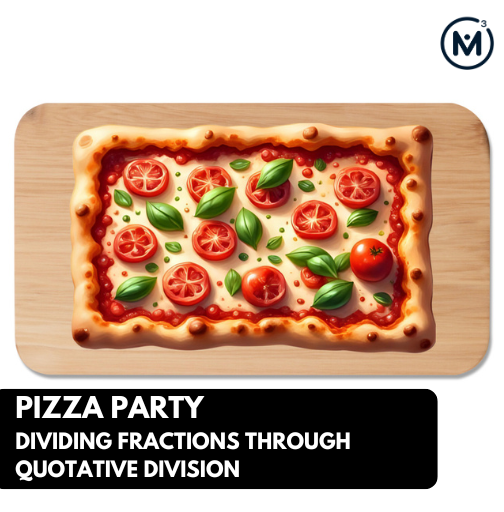
Length of Unit: 5 Days
Access each lesson from this unit using the navigation links below
Students will determine the number gifts that can be wrapped with the remaining roll of wrapping paper through quotative division.
Intentionality…
In this task, students will observe servings of pizza being dished out onto a plate. Each person will receive one-fifth of a pizza. This quantity of pizza is considered one serving. If the party host has two and one-half pizzas left, how many servings can they make? In this context, students are dividing two and one-half pizzas by one-fifth pizza/person, this is a context that elicits quotative division.
The purpose is to reveal the number of iterations or parts of the rate (one-fifth pizza/person) in the other quantity of the same unit (two and one-half pizzas). Some of the big ideas that may emerge through this task include:
- There are two types of division;
- In quotative division, both the dividend and the divisor have the same unit (wrapping paper and wrapping paper).
- The divisor is a rate.
- The quotient can represent the number of parts or iterations of the rate.
- Quotative division can be accessed through skip counting, repeated addition, repeated subtraction or multiplication.
- When you scale both the dividend and the divisor by the same factor, the quotient will remain the same.
Spark Curiosity
What Do You Notice? What Do You Wonder?
Show students the following animation:
Then, ask students:
What do you notice?
What do you wonder?
Give students 60 seconds (or more) to do a rapid write on a piece of paper.
Replaying the animation and/or leaving a screenshot from the video up can be helpful here.
Then, ask students to share with their neighbours for another 60 seconds.
Finally, allow students to share with the entire group. Be sure to write down these noticings and wonderings on the blackboard/whiteboard, chart paper, or some other means to ensure students know that their voice is acknowledged and appreciated.
Some of the noticing and wondering that may come up includes:
- It looks like some sort of red paper.
- Is this wrapping paper?
- Why are we watching this?
- I see a red rectangle that is short and wide.
- Are we going to be wrapping presents?
- And possibly others.
Note that we do not expect too many notices or wonders here as the video animation is quite short and there is not a lot of information being shared yet. Don’t spend too much time here.
After students do share a few of the things they notice and wonder, you can answer any wonders that you can cross off the list right away. For example:
- Yes, this is a roll of wrapping paper and it appears that we are looking at the entire roll laid out.
- This is an animation of the presents that were wrapped for the Pizza Party from Day 1.
Feel free to elaborate on any other details to help connect the context from Day 1.
Estimation: Prompt
After we have heard students and demonstrated that we value their voice, we can land on the first question we will challenge them with:
Based on the limited information we have so far, what fraction of the roll of wrapping paper was used to wrap one gift?
Make an estimate and share it with your neighbours.
We can now ask students to make an estimate (not a guess) as we want them to be as strategic as they can possibly be. This will force them to determine a fraction of the roll of wrapping paper that would be reasonable before determining a more precise answer. Consider asking students to think about an estimate that would be “too low” and an estimate that would be “too high” before asking for their best estimate in order to help them come up with a more reasonable estimate.
Listen for students exploring the relativity of one-half and one-fourth. For example, if a student says “I think it is one-fourth because it looks like it is half of one-half of that roll”, this might be a good opportunity to explore other fractions that share this same relationship (for example, tenths and fifths, sixths and thirds, and eighths and fourths).
Estimation: Reveal
Show students the following animation to reveal how many gifts a single roll of wrapping paper can wrap:
You might also consider showing this still image:
Fuel Sense-making
During Moves
While Students Are Productively Struggling….
Login/Join to access the entire Teacher Guide, downloadable slide decks and printable handouts for this lesson and all problem based units.
Student Approaches
Student Approach #1: Fraction Strips and Spatial Reasoning
Login/Join to access the entire Teacher Guide, downloadable slide decks and printable handouts for this lesson and all problem based units.
Student Approach #2: Bar Model and Common Multiples
Login/Join to access the entire Teacher Guide, downloadable slide decks and printable handouts for this lesson and all problem based units.
Student Approach #3: Leveraging Equivalence through Scaling
Login/Join to access the entire Teacher Guide, downloadable slide decks and printable handouts for this lesson and all problem based units.
Next Moves
Consolidation
Login/Join to access the entire Teacher Guide, downloadable slide decks and printable handouts for this lesson and all problem based units.
Reflect and Consolidation Prompts
Students will complete the following consolidation prompts independently.
Consolidation Prompt:
Login/Join to access the entire Teacher Guide, downloadable slide decks and printable handouts for this lesson and all problem based units.
Resources & Downloads
Login/Join to access the entire Teacher Guide, downloadable slide decks and printable handouts for this lesson and all problem based units.
Printable Lesson Plan PDF
Videos, Images & Media Files
Apple Keynote Presentation
Powerpoint Presentation
Printable Consolidation Prompts
Educator Discussion Area
Login/Join to access the entire Teacher Guide, downloadable slide decks and printable handouts for this lesson and all problem based units.
Explore Our 60+ Problem Based Units
This Make Math Moments Lesson was designed to spark curiosity for a multi-day unit of study with built in purposeful practice, number talks and extensions to elicit and emerge strategies and mathematical models.
Dig into our other units of study and view by concept continuum, grade or topic!


